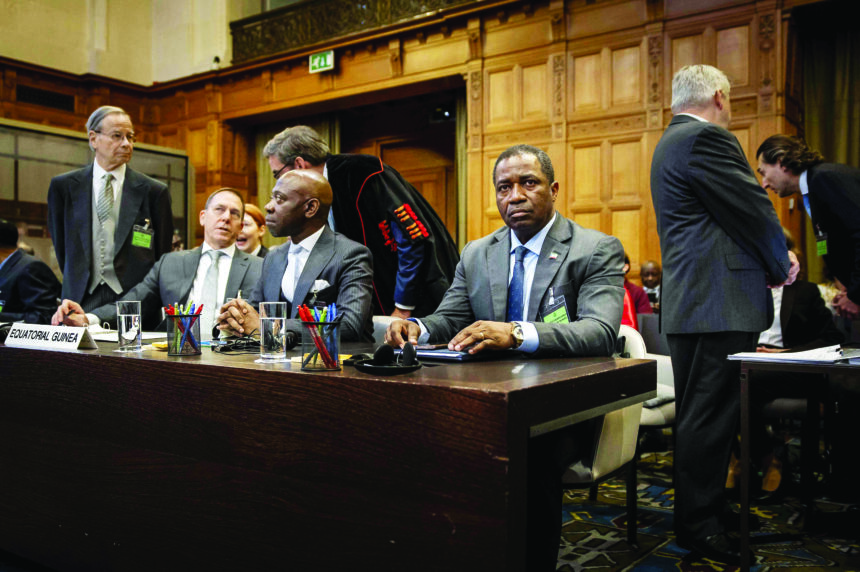THE HAGUE – Gabon claimed sovereignty over three islands in oil-rich waters yesterday, telling the International Court of Justice the matter had already been settled by a 1974 treaty hotly disputed by Equatorial Guinea.
The two west African nations have been squabbling over the 30-hectare (74-acre) island of Mbanie and two smaller low-lying islets, Cocotier and Conga, since the early 1970s.
The islands themselves are tiny and virtually uninhabited, but lie in an area potentially rich in oil and gas.
The dispute dates all the way back to 1900, when then colonial powers France and Spain signed a treaty in Paris, setting out the borders between the two countries.
Gabon told the ICJ that the 1974 Bata Convention fixed the sovereignty of the islands in their favour — but Equatorial Guinea has dismissed this document as incomplete and unofficial.
“This treaty, which we regard as being fully valid, resolves all sovereignty issues regarding the islands and border delimitation,” said Marie-Madeleine Mborantsuo, honorary president of Gabon’s constitutional court.
Equatorial Guinea says Gabon invaded the islands in 1972 and “has occupied them illegally ever since”.
On Monday, lawyers and officials from Equatorial Guinea had rubbished the Bata Convention.
Philippe Sands, representing Equatorial Guinea, said for the court to give credence to these “scraps of paper” would be “to enter into the world of implausibility and
ridicule.”
“You are being asked to rule that a state can rely on a photocopy of a photocopy of a purported document, the original of which cannot be found, and of which no mention was made, or any reliance placed for three decades,” said Sands.
The two countries have asked the court to decide which legal texts — the 1900 document or the disputed 1974 accord — are valid, not to define which nation has sovereignty.
Mborantsuo admitted that “sadly, neither of the two parties can find the original document of the better convention.”
The treaty was drawn up in an era before computers and databases, she said.
“Archives were badly managed because of a number of things, unfavourable climate, a lack of trained personnel and lack of technology.”
Hearings continue all week with the ICJ, which was set up to rule in disputes between states and is likely to take several months to come to a decision.
Unlike most contentious cases that come to the ICJ in The Hague, the two countries eventually agreed to send the thorny issue to the judges to find an amicable solution. – Nampa/AFP


